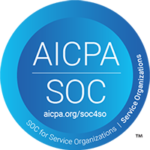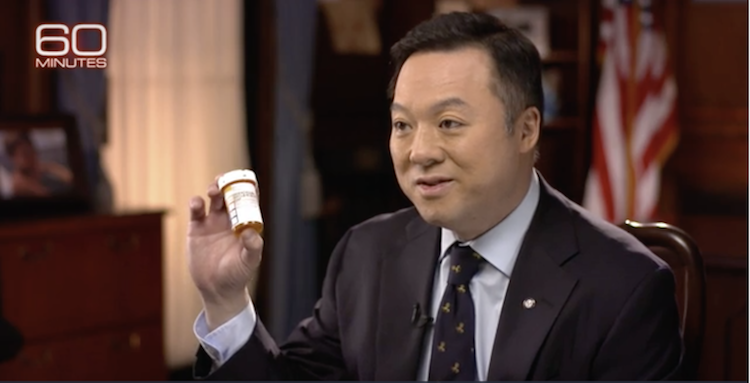

Connecticut Attorney General William Tong with his own prescription, one of the generic drugs in an alleged price-fixing conspiracy. (Screenshot from CBSNews.com)
In case you needed another reason to be outraged over drug prices, you got a big one on May 11. 60 Minutes aired this alarming story about alleged price-fixing and collusion in the generics market.
A week ago, attorneys general from Connecticut and more than 40 other states filed a 500-page lawsuit accusing the biggest generic drugmakers of a massive, systematic conspiracy to bilk billions of dollars from US consumers and taxpayers.
The suit culminates a five-year investigation by Connecticut Attorney General William Tong and two antitrust attorneys in his office, Mike Cole and Joe Nielsen. Kudos to them, and to CBS for allowing 60 Minutesto report on it.
This story needed to be told. Consumers have been told for years that generics are the panacea for pulling down drug prices. The theory goes that once a brand drug’s patent expires, multiple generic manufacturers will jump in and grab some market share, compete against one another on price, and let market forces do their job.
In practice, however, it appears that pure greed—and the freedom to raise prices at will—pays off even in the so-called generics “market.”
“The generic industry is the largest private-sector corporate cartel in history,” Attorney General Tong explained to CBS’ Bill Whitaker. “(This case) might be the biggest price-fixing scheme in US history.”
Tong and his team back it up with some mighty convincing evidence. They point to 1,215 generics whose prices jumped an average of 400% in a single year. We’re talking some of the most often-prescribed medications on the market, drugs for which there are multiple manufacturers.
But rather than compete, the biggest generic drugmakers allegedly agreed to “play nice in the sandbox,” i.e. agree to raise prices astronomically and in unison.
Among the 500 pages in Connecticut’s lawsuit are text messages like this between executives from “competing” generic drugmakers:
Heritage Pharmaceuticals: “We are raising the price right now—just letting you know. Teva says they will follow. Aurobindo agrees too.”
Citron Pharma: “â¦we are def[initely] in to raise pricingâ¦are doing this immediately⦔
Heritage Pharmaceuticals: “We are raising our customers 200% over current market price.”
Thousands of text and phone records were seized and analyzed by the investigating attorneys, and many corresponded with the timing of price increases on generic drugs, which account for 90 percent of prescriptions filled in America.
“This conspiracy has caused billions and billions of dollars in damages to the people of Connecticut and states across the country,” Tong said in the interview. “We’re going to take on (generic drugmakers named in the suit) in court and hold them accountable. They’re going to pay for the money they stole from the American people.”
The defendants, which include manufacturers like Teva, Sun, Aurobindo, Heritage, Citron and Greenstone, say the claims have no merit and plan to vigorously defend against the allegations. Not one was willing to talk to CBS. Their trade group said product shortages and market forces led to the price increases.
“We have hard evidence that clearly demonstrates it was cold, hard greed,” Tong said. “That’s the only conclusion I think anyone can draw when they see this evidence.
As an attorney general, I look at this and think, âHow can they do that?’ What we’ve concluded is, they know it’s illegal. And it’s not that they’re too big to fail, it’s that they’re just too big to care.”
—
How We Help
Rx Savings Solutions continually tracks drug prices and the impact price hikes have on our members and clients. Generic drugs account for nine of every 10 prescriptions filled in America. As you might imagine, we suggest brand-to-generic switches quite often, but also generic-to-another-generic, and generic “clones” come into play as well.
The 60 Minutes report highlighted three example generics for which egregious price-fixing allegedly occurred: Nystatin, a common antifungal; the antibiotic Doxycycline Hyclate; and Albuterol Sulfate, a widely prescribed drug for asthma and other respiratory conditions.
When each of those drugs shot up in price, our solution automatically alerted affected members and suggested lower-cost options.
Nystatin: The member is shown an opportunity to take their medicine in a different form and go from paying $108.74 to $57.15.
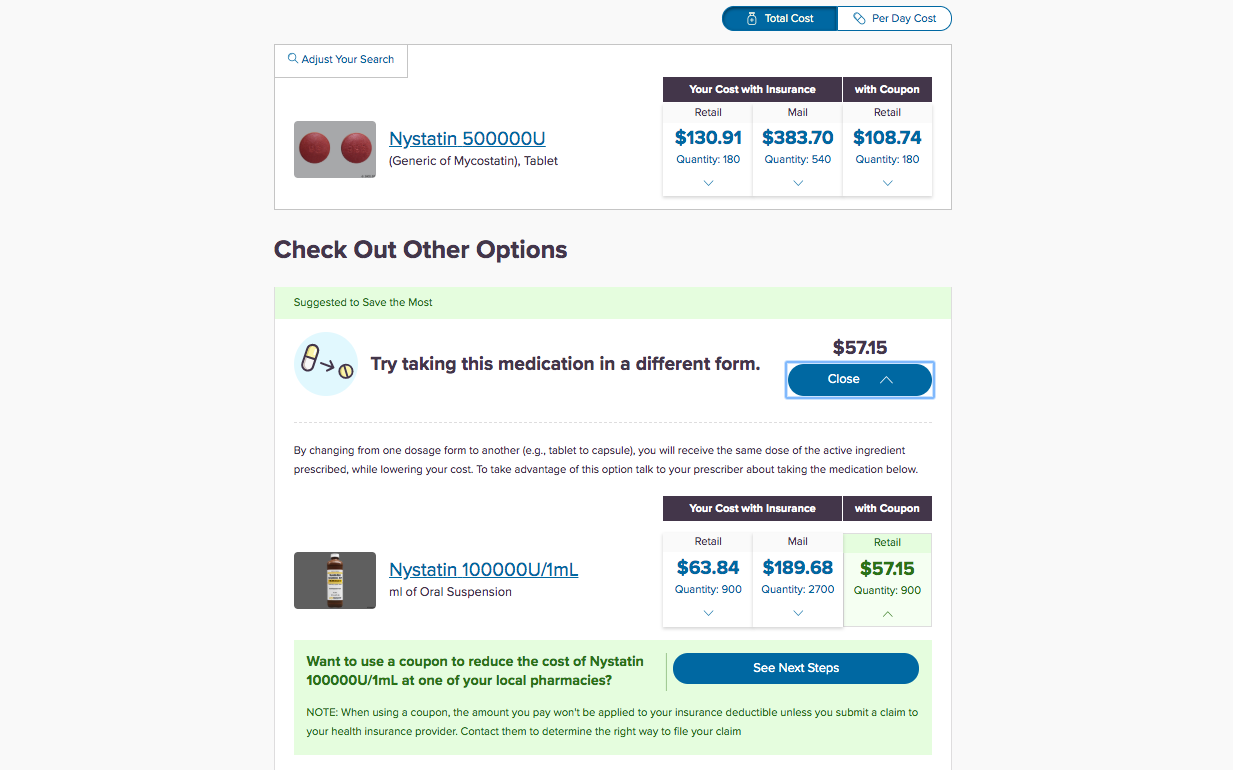

Doxycycline Hyclate: The member is shown an opportunity to take a different medication that treats the same condition—or take their medicine in a different form—and go from paying $285.68 to $21.53 or $23.63, respectively.
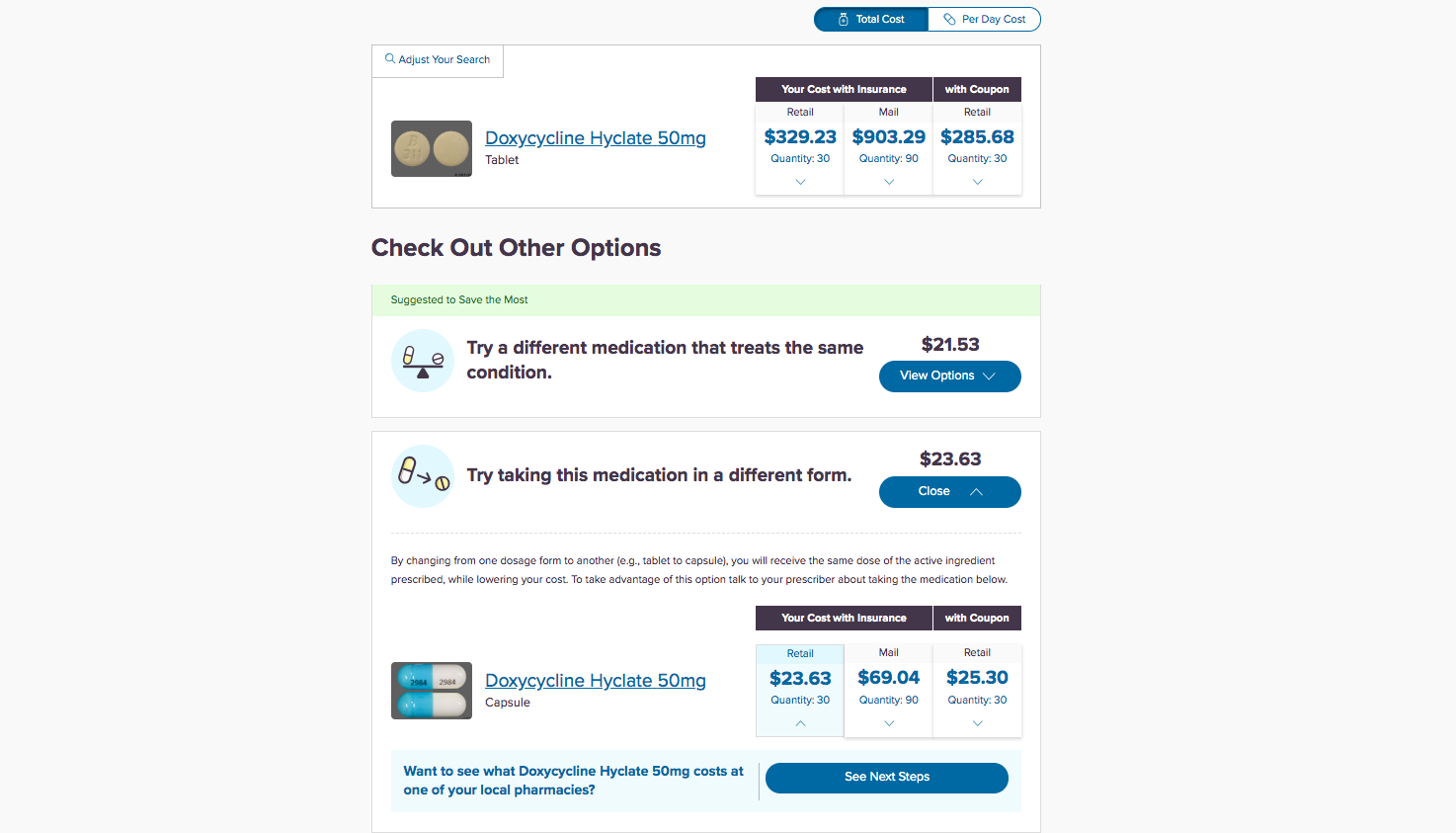

Albuterol Sulfate: The member is shown an opportunity to take their medicine in a different form and go from paying $225.27 to $15.84.
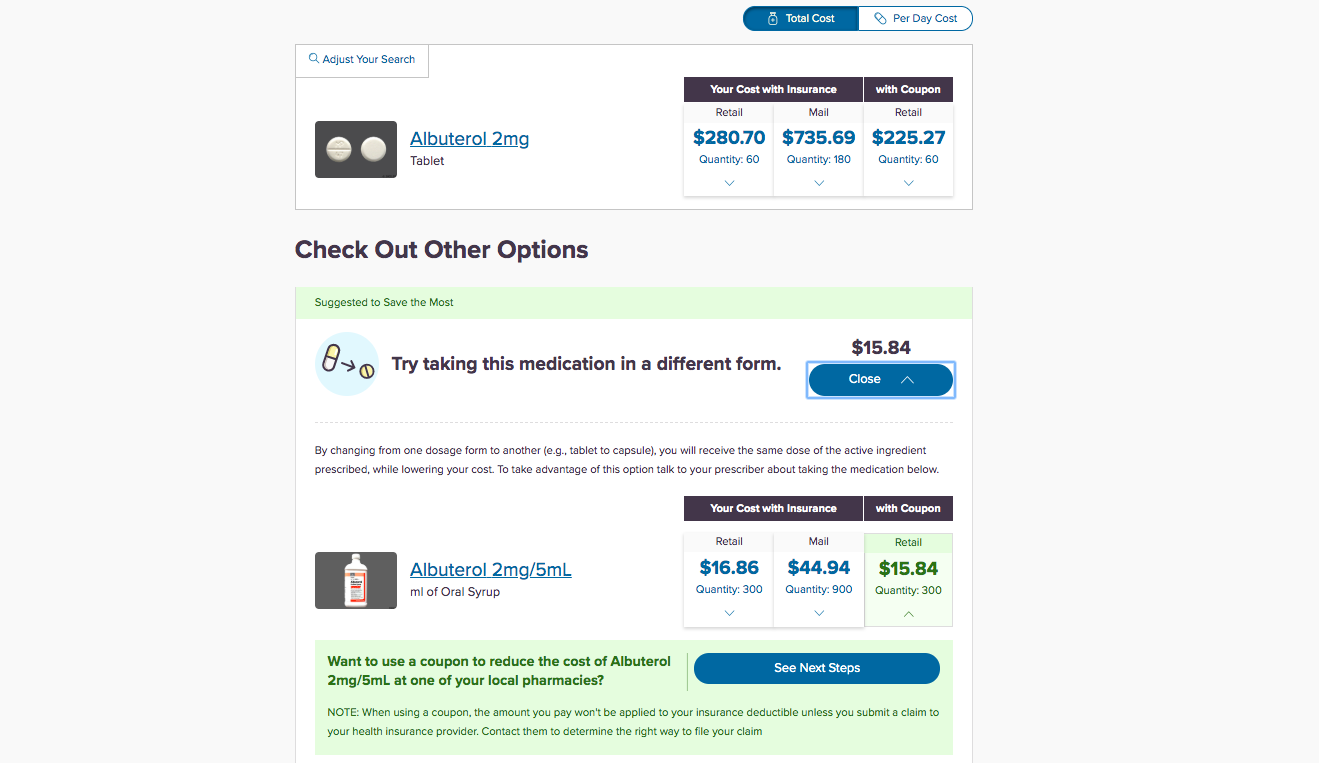

Price-fixing or not, generic medications remain an important option for many members. But generics are only one piece in the very complex puzzle of finding the best therapy at the best cost. Amid all the bad news coming out of big pharma, the good news is that Rx Savings Solutions solves the pricing puzzle automatically, instantly and effectively.


